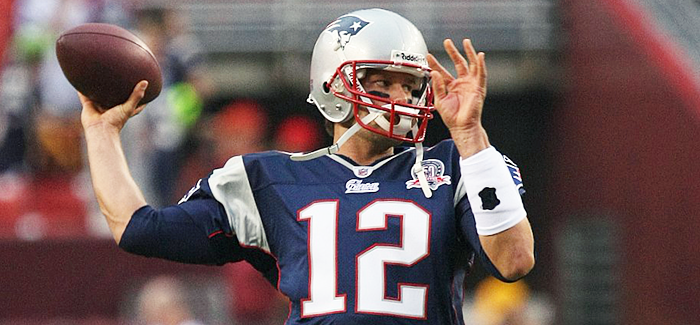
Sandwiches, wings, fries, and chili with the fixings were on the menu for the 40 or so attendees at the International House annual talk “Understanding American Football,” presented the week before the Super Bowl. “If you didn’t know, the University of Chicago does have a football team, and they do quite well in their division,” said I-House’s Kory Sopko (“quite well” meaning the team went eight for nine last season). “There are some smart people who play football,” added Sopko, as she introduced the guest speaker, assistant football coach Craig Knoche, who received bachelor’s degrees in mathematics and Spanish from Illinois Wesleyan University and a master’s degree in pure mathematics from the University of Illinois.
Knoche began his talk by passing around some of the equipment the players wear so attendees could feel the weight of the pads, try on a helmet, and palm a football (obligatory joke from the audience: “What is the ‘pressure’?”).
Knoche showed video clips of the Maroons playing Washington University in St. Louis (Chicago won, 44-23) to demonstrate the various jobs of defense, offense, and special teams, and discussed the differences between the various collegiate divisions and professional teams before explaining the key points of Super Bowl XLIX: who the key players and coaches are, the teams’ various controversies, and even America’s actual favorite pastime, Super Bowl betting. “I think one of the reasons why football is popular, aside from the violence and the way it fits well with TV with all the breaks for commercial, is that people gamble like crazy on the NFL.”
Then Knoche opened up the floor to questions, of which there were many (not surprising, since the audience was composed of undergraduate and graduate students as well as several visiting scholars and postdocs). Here is a sampling:
Do you need to be in the college system to be in the NFL? No. You need to be at least three years out of high school.
What are the major differences between football and rugby? I don’t know anything about rugby.
[[{"type":"media","view_mode":"media_original","fid":"2314","attributes":{"alt":"","class":"media-image","height":"362","typeof":"foaf:Image","width":"460"}}]] (Photography by Claire Zulkey)
How does mathematics help you coach football? It’s mental gymnastics, which helps train our kids to think abstractly about concepts. Kids want to memorize by rote, but I try and teach them in the abstract. Our kids now understand that if the front end of passing play is running a certain route, we want to keep our spacing so they don’t run into each other. We’re trying to stretch the field vertically, so we want to think of it that way instead of thinking, “Okay, there’s the X, Y and Z, and I’m the Z.”
Why do the coaches use headsets? Some are on the field and some are up top in the booths. The best way to watch football is from far away so you can see everything.
[[{"type":"media","view_mode":"media_original","fid":"2315","attributes":{"alt":"","class":"media-image","height":"362","typeof":"foaf:Image","width":"460"}}]] (Photography by Claire Zulkey)
What should we watch for in the Super Bowl?
The Seahawks have a great defense, but the Patriots arguably have the greatest quarterback of all time [in Tom Brady]. I think the game will be low scoring. If [Seattle defensive back] Richard Sherman has a good day covering people, then the Patriots won’t win, but if [New England tight end] Rob Gronkowski has a great day catching and scoring, the Patriots will win.
Who are you cheering for? I want the Patriots to win. They’ve been so good for so long and people hate them and are jealous of their success. They never have a bad year. Some people say, “I hate them because my team isn’t as good as they are.” I appreciate their consistency.
